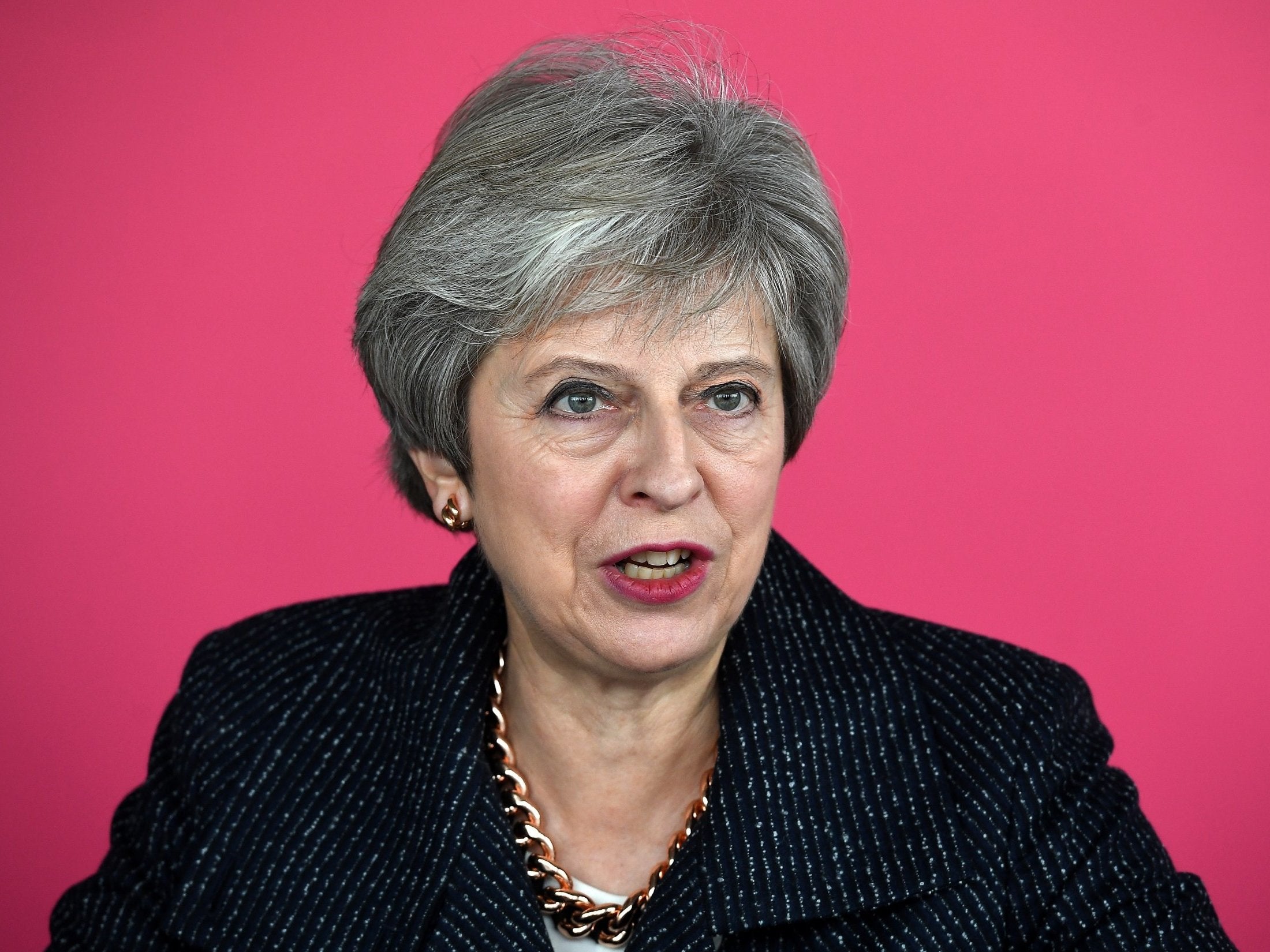Theresa May should brace herself for cabinet resignations, after admitting a customs union could be indefinite
The prime minister is performing verbal contortions that would make an Olympic gymnast proud, to send different messages to her domestic and EU audiences, but last night’s session with a closer inner cabinet appears to have backfired


Theresa May can’t win. If she placates Tory Eurosceptics and the DUP, she can’t strike a Brexit deal with the EU. But if she makes concessions to the EU to get a withdrawal agreement, she runs into trouble at home. That’s the phase we are now in.
The evil day can be put off no longer because time is running out to secure a deal. In June, to prevent the resignation of David Davis as Brexit secretary, May promised that a customs arrangement under the backstop to prevent a hard Irish border would not last beyond December 2021. (Davis resigned the following month over her Chequers plan.)
Last night, when May summoned senior ministers to Downing Street, they noticed the end date was missing from her revised backstop – because the EU will never accept a time-limited guarantee. Today Number 10 insisted the backstop would not be permanent, saying a trade deal that would supersede it “needs to be in place by the end of December 2021 at the latest”. But that stops short of a guarantee.
May is performing verbal contortions that would make an Olympic gymnast proud, to send different messages to her domestic and EU audiences. She has repeatedly promised the UK would not remain in “a” customs union as well as the EU’s existing one. She could call her new proposal a “customs arrangement” at home and a “union” when she speaks to the 27 EU leaders over dinner in Brussels next Wednesday.
Last night’s meeting was designed to bind the cabinet’s “swing voters” – such as Sajid Javid, Jeremy Hunt and Michael Gove – into May’s strategy, so she can win the full cabinet’s support on Tuesday. May is pulling all the levers of the Whitehall machine. The cabinet’s Brexit subcommittee is out of fashion after she found herself in a 5-6 minority over her previous customs plan, and hasn’t met since July. But last night’s session with a closer inner cabinet appears to have backfired: several ministers – including the “big beasts” she desperately needs to keep onside – expressed concern that a customs union would be indefinite.
Although May promised the backstop would have a “review clause”, that might not be enough to prevent one or two cabinet resignations. Her critics fear the UK would be trapped in the EU’s orbit, saying the EU would have no incentive to let the UK escape once it signs off its £39bn divorce payment under the withdrawal agreement.
Andrea Leadsom, the Commons leader, and Penny Mordaunt, the international development secretary, are top of Number 10’s watch list. Esther McVey, the work and pensions secretary, might also walk. Liam Fox understandably feels the latest proposal would undermine his role as international trade secretary by limiting deals with non-EU countries. But his strong personal loyalty to May might keep him inside her tent. The other one to watch is Dominic Raab, the Davis ally who succeeded him as Brexit secretary. He told the Commons on Tuesday the backstop would be “limited, finite and temporary”.
Although May must sometimes feel she can’t win, allies are confident she will win a Brexit deal. The mood music has changed since last month’s disastrous Salzburg summit. I expect some progress next week, allowing the EU to call a special summit in mid-November to clinch a withdrawal agreement and political declaration on the future UK-EU relationship.
It sounds odd as May struggles to hold her cabinet together, but the EU deal will be the relatively easy bit. Her biggest hurdle will be the crucial Commons vote on a motion endorsing the deal, probably in early December. Loyalist cabinet ministers – there are a few – tell me that landing a deal would give May the precious ingredient of momentum, and change the landscape amid relief at avoiding a no-deal departure next March; a bounce in the financial markets and upgraded economic growth forecasts. They believe this would also change the parliamentary arithmetic – currently stacked against May, especially after the DUP’s threat to depose her and end its “confidence and supply” agreement, which gives the Tories a working majority.

I am not so sure. Even if threats of “no Brexit”, a general election and Corbyn government burn off half of the 40 Tory Eurosceptics, May would still need the support of about 15 Labour MPs. Without the DUP’s backing, the figure would be 25.
The Tories naturally talk up the prospect of winning over 30 Labour backbenchers, but that would be a tall order. May might get a small number of Labour Eurosceptics and MPs representing areas which voted Leave in 2016. But she would also need some pro-EU Labour MPs. True, some of them would have a dilemma when May presents them with a choice of “my deal or no deal”. But they could still reject her agreement and, if Labour and pro-EU Tories stood firm, prevent a no-deal exit too. How? By voting to extend the March deadline and, possibly, for a Final Say referendum.
Join our commenting forum
Join thought-provoking conversations, follow other Independent readers and see their replies
Comments
Bookmark popover
Removed from bookmarks